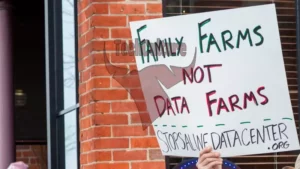Starbucks, the ubiquitous coffee giant, found itself in hot water after firing seven employees who were leading a unionization effort at a Tennessee store. The National Labor Relations Board (NLRB), in a rare move, stepped in and obtained a court order requiring Starbucks to rehire the workers. Now, the coffee giant is taking its case to the highest court in the land, the Supreme Court, seeking to limit the government’s power in such matters. The case, which is scheduled to be heard by justices on Tuesday, revolves around the fundamental rights of employees to organize and the authority of federal agencies like the NLRB to intervene in labor disputes.
Since late 2021, workers at 420 company-owned Starbucks stores across the United States have voted to unionize. However, none of these stores have managed to secure a labor agreement with the coffee chain. The pivotal moment in this legal battle came in February 2022 when Starbucks terminated seven employees who were at the forefront of the unionization campaign in Memphis, Tennessee. The NLRB swiftly moved to challenge Starbucks’ actions, leading to a federal district court issuing a temporary injunction compelling the company to reinstate the workers while the case underwent administrative proceedings.
Starbucks, not content with the district court’s ruling, took the matter to the 6th U.S. Circuit Court of Appeals, which upheld the decision in favor of the NLRB. Undeterred, Starbucks escalated the dispute to the Supreme Court, arguing that there is a lack of uniformity among federal appeals courts on the standards the NLRB must meet when seeking temporary injunctions against companies. The crux of Starbucks’ argument lies in establishing a standardized four-factor test that all courts must adhere to when evaluating NLRB injunction cases, thereby seeking clarity and consistency in future labor disputes.
The National Labor Relations Act, the legal framework governing the NLRB’s actions, empowers courts to grant temporary injunctions if deemed “just and proper.” In the case of Starbucks, the Sixth Circuit mandated that the NLRB demonstrate both reasonable cause to suspect unfair labor practices and the appropriateness of a restraining order. The NLRB contends that temporary injunctions are rarely sought, with only a handful of cases in a given fiscal year, highlighting the gravity of the situation at Starbucks and the broader implications for workers’ rights across the country.
As the legal showdown unfolds before the Supreme Court, the outcome could have far-reaching implications for labor relations in the United States. The clash between corporate interests and workers’ rights is at the heart of this case, underscoring the ongoing tensions in the modern workplace. The decision of the Supreme Court will not only impact Starbucks and the NLRB but also set a precedent for how future labor disputes are adjudicated in a rapidly evolving economic landscape.





